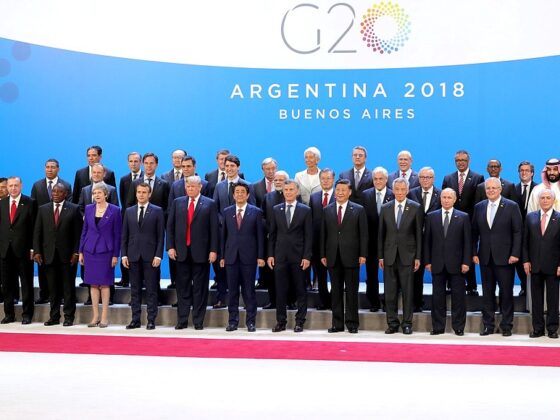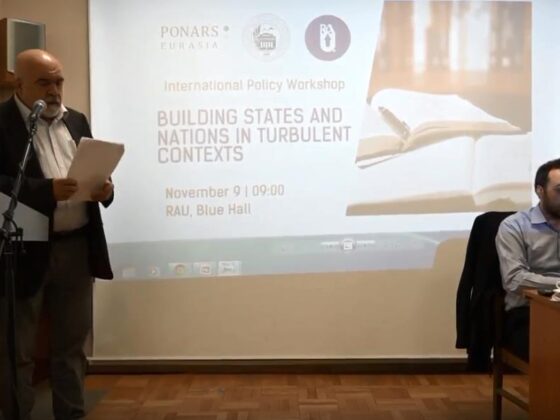(PONARS Policy Memo) The 2014 crisis between Russia and Ukraine has produced new security concerns in Minsk related to a hypothetical Russian intervention and occupation of Belarus. But the crisis has also allowed Minsk to reap some short-term diplomatic benefits and improve its image in the West. When Ukraine became a target of Russian hybrid aggression, Belarusians naturally lost part of the attention they had enjoyed as victims of “Europe’s last dictatorship.” In fact, some in the West apparently thought that the existing regime in Minsk was the lesser of the two evils, as it effectively prevented a “Ukrainian scenario” in Belarus—a weakened state that falls victim to Russian intervention resulting in another zone of instability in the EU’s immediate neighborhood. However, Belarus’ status as Moscow’s closest ally and its deep structural dependence on its neighbor severely limit Minsk’s options for addressing the Kremlin’s hybrid, near-abroad intervention tactics and seeking closer relations with the EU and NATO. Belarus’ independence remains precarious from within its Russian bear hug of overwhelming political, economic, and cultural influence.
Never Waste a Neighbor’s Crisis
Minsk did its best to exploit the diplomatic opportunities presented by the Ukrainian crisis. The Minsk agreements largely failed in resolving the frozen conflict, but for the Belarusian president, just hosting François Hollande, Angela Merkel, and Vladimir Putin in 2015 was a major public relations breakthrough. Belarus state TV went gaga over their “Normandy Four” meeting in Minsk, claiming the state now had a new international image as a regional mediation platform. The subsequent lifting of EU sanctions against Belarusian civil servants and businessmen in February 2016 seemed to confirm that the war in Ukraine helped Minsk officials break out of their isolation. Think tanks close to the government began raving about Belarus sending a “signal to the world” that it was now a locale of stability and security. In parallel, a threat narrative about imminent Russian aggression also began to be constructed and shared. In that narrative, the Minsk government marketed itself as the protector and guarantor of sovereignty, while some domestic political opponents, as well as parts of the state apparatus responsible for repressive measures, were portrayed as agents of the Kremlin.
The Ukraine crisis thus presented not just additional diplomatic opportunities but also a new source of legitimacy (inter alia for hypothetical domestic crackdowns) and, arguably, a new potential for rally-around-the flag tactics. Arguably, for the first time in his long career, President Alyaksandr Lukashenka found himself in opposition to much of his own traditional pro-Russian electorate that welcomed Russia’s annexation of Crimea. As for the pro-Western segment of the population, it faced a difficult choice. Well aware of the hybrid threat from Russia, it also realized clearly that Belarus’ present, calm situation was a logical consequence of its long-term, strategic, alliance with Russia.
For years, Lukashenka was active in building up the image of Belarus as Russia’s staunchest and truest ally. That image sold very well with the Russian establishment, especially in those days when Russia’s former Central and Eastern European vassals fled from Moscow’s rapidly shrinking sphere of influence. Lukashenka’s stakes went up every time there was confrontation between Russia and the West because both sides tried to court him, which presented him with some leverage over larger international actors. As long as Russia remained weak enough, being its “last ally” was profitable business for Minsk.
However, as Russia grew stronger and more assertive, a new understanding began to crystallize: the main threat may, in fact, not be coming from the West or NATO, which were traditional bugaboos for Belarusian official propaganda. Russia’s 2008 intervention in and occupation of parts of Georgia and (especially) its hybrid blitzkrieg on Crimea sent shivers down more than one spine in Minsk. Unwritten rules had clearly changed. The Russia that Minsk now faced was no longer weak and necessarily generous toward its neighbors but poised to use military force in nearby states under, primarily, the pretext of protecting compatriots. From an ideological point of view, Putin’s newly spread concept of “Russian world” was certainly menacing, as it was, in principle, a de-territorialized outlook. It referred to an imagined cultural community of Russian speakers not bound by legally established borders (at least those that formed after 1991). The ideological recipe for territorial revisionism was now ready.
Despite redefined threats, Belarus remained locked into its status as Moscow’s closest associate. It maintained its military alliance with Russia and remained in a number of key (Russian) post-Soviet regional frameworks like the Eurasian Economic Union and the Collective Security Treaty Organization. For years, Belarus resisted the building of Russian military bases on its soil, using this issue as a bargaining chip, but probably also sensing the danger of permanently stationed Russian troops there, as they could, theoretically, be used in a Crimean-type scenario. But regardless of these political “wars of position” that regularly sour relations between Minsk and Moscow, there was little that the former could do strategically to escape the Kremlin’s bear hug of economic and political dependence. Diplomatic breakthroughs on the Western front notwithstanding, the unreformed political system continued to be an obstacle to strengthening cooperation with the EU and NATO, which could in theory, counterbalance Russian influence in Belarus.
In Ukraine’s Image?
In Russia itself, the idea of a Belarusian drift toward the West provoked increasingly nervous reactions. Several Russian online outlets became preoccupied with systematically constructing a new image of Belarus. This included portraying Lukashenka’s regime as “flirting with nationalism” or even as “anti-Russian” and trying to destroy Russian culture through Belarusization policies. Belarus was also presented as facing the danger of a pro-Western fascist coup that would sever it from “Russian world” (understood as political and cultural unity with Russia). Implicitly, these attempts to re-imagine Belarus as a sort of “second Ukraine” suggest Russian intervention as the next logical step.
In a way, the new Russian discourses on Belarus were a byproduct of the anxiety and paranoia that the post-Crimean wave of Russian chauvinism brought. The siege mentality actively fostered by the Kremlin sought out enemies literally on every corner. On a deeper level, however, they also indicated how superficial the general knowledge of Belarus had been in Russia. For decades, the Russian mental map portrayed Belarus as a “Russian” country that had preserved Russo-Soviet heritage better than Russia itself. In Russian popular geopolitics, Belarus almost always played the role of Russia’s westward outpost that can reliably and altruistically help Russia in its struggle against Western enemies. It was assumed that Belarusians were a brotherly nation whose only dream was to re-unite with its elder sibling. Seen through this lens, even the independence of Belarus as a state looked like a temporary misunderstanding that would sooner or later be resolved. For his part, Lukashenka, at times, has actively reinforced this geopolitical mythology and was brilliant in exploiting it to extort various political and economic concessions from the Kremlin.
Anger and frustration tend to happen when romanticized myths clash with reality. First, despite the existence of the so-called Union State, Lukashenka’s manipulative policies showed no signs of effectively merging Belarus into Russia as yet another Russian region. On the contrary, he went so far as to allow himself an independent foreign policy on key issues such as the recognition of Georgia’s breakaway provinces or on the issue of Crimea, about which Minsk has been rather ambiguous.
Second, after nearly three decades of independence, a new vision of national identity developed in Belarus. In the past, Belarus was extensively Russified by Moscow’s colonial practices. The fate it suffered could be compared to that of Ireland, where for a majority, the local language was supplanted by the language of the colonizer. Yet, today, Russian-speaking Belarusians, or even ethnic Russians living in Belarus, do not necessarily identify themselves as Russian, let alone with Putin and his policies. Over the years, a Russian-speaking, civic, Belarusian nationalism has started to emerge. It sees the Belarusian language, history, and culture as vital symbols of independence. The consolidation of an independent civic nation in Belarus runs contrary to the Russian chauvinistic narrative that tries to frame Belarus as a victim in need of rescue from things like “Banderization,” in other words, from Western-backed fascistic, nationalistic plots.
This clash of narratives did not go unnoticed. In 2014, shortly after the Russian annexation of Crimea, Lukashenka famously called on the Belarusian KGB to suppress any talks of “persecutions of Russians in Belarus.” Still, there were also steps aimed at reducing Russia’s influence over political symbols. As war ramped up in Ukraine, the St. George ribbon rapidly came to stand as a controversial symbol of “Russian world” and it was widely displayed by pro-Russian militants in eastern and southern Ukraine. Leaked documents show that the Belarusian authorities started taking measures to replace the ribbon colors in their ceremonies. Thus, for the traditional May 9 Victory Day celebrations in Belarus, the usual black and orange colors of the St. George ribbon were replaced with green and red, the colors of the Belarusian flag. The tug-of-war over collective memory continued, and only in 2018 did the Belarusian authorities reluctantly allow the Russian-originating Immortal Regiment to march on Victory Day, while stating the Belarusian government’s intent to appropriate the organizing of it next year.
Fear of Russian “sharp power“ tools stimulated a number of tactical steps. Some of them had to do with cautious distancing from the “Russian world” narrative and even cracking down on the most vocal pro-Russian critics of Belarusian independence—as the trial of three Belarusian journalists working for the Russian Regnum agency demonstrated. The authorities also displayed certain signs of stimulating (half-heartedly) the popularity of the Belarusian language and ethnic culture—apparently to strengthen national identity and win the sympathies of pro-Western citizens. However, in its tactical precautions against Russian irredentism, Minsk also faced clear limits, as Belarus’ structural dependence on Russia persisted and the risk of provoking the Kremlin by being too pro-Western or too nationalist became very real after 2014.
Conclusion
In the long term, much depends on timing. Though the Kremlin has zero love for Lukashenka on the personal level, it may, for the time being, postpone “the ultimate solution” and treat him as the lesser evil compared to a hypothetical pro-Western overtake. However, sooner or later, Lukashenka’s regime of personal power is bound to collapse. If by that time the irredentist “Russian world” ideology is still trending, the Kremlin may take advantage of the power vacuum in Minsk to make its move and try to end the “misunderstanding” of Belarusian independence.
For the pro-Western part of the population, and indeed for those in the ruling establishment who value Belarusian independence, the present situation offers no grounds for solid optimism. Belarus lacks the kind of security guarantees that the Baltic states enjoy as members of NATO. Signatories to the 1994 Budapest Memorandum, including Russia, promised to respect Belarus’ territorial integrity in exchange for giving up nuclear weapons. But if the example of Ukraine has taught post-Soviet countries anything, it is that, international obligations notwithstanding, Western powers will not risk direct military confrontation with Russia to honor their commitments. Thus, for Belarus, the paradox of being inside the “bear hug” is that at practically any time, the embrace could constrict, creating Russia’s next victim.
Aliaksei Kazharski is a Researcher in the Department of Security Studies at the Institute of Political Studies at Charles University, Prague, Czech Republic.
[PDF]
Homepage image credit.
Recommended:
Andrey Makarychev and Aliaksei Kazharski, “Europe in Crisis: “Old,” “New,” or Incomplete?,” PONARS Eurasia Policy Memo No. 515, March 9, 2018.
Aliaksei Kazharski, “Is Putin Winning the Recognition Game? Is the Eurasian Union Back on the Table?,” PONARS Eurasia blog post, February 12, 2015.
Aliaksei Kazharski, “The Rainbow Rationalization,” PONARS Eurasia blog post, November 22, 2013.










